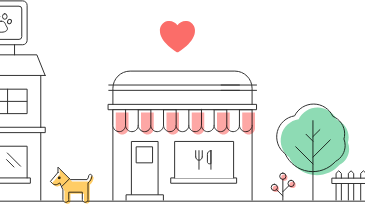Do I Need Business Insurance?
As a small business owner, recent events (including COVID-19) may leave you wondering if and how business insurance can protect you. In the event of unforeseen issues like temporary closure, property damage, and acts of global health, is insurance your best bet for protection?
Maybe you don’t have insurance coverage at all, or maybe you’re wondering what specific insurance policies you should add to better protect your business.
Either way, business insurance is a great way to protect your business when events out of your control threaten your bottom line. However, with complicated contracts and exclusions, it’s sometimes hard to know exactly what your policy covers.
This is your guide to understanding several different types of business insurance:
- General Liability Insurance
- Workers’ Compensation Insurance
- Professional Liability Insurance
- Commercial Property Insurance
- Business Interruption Insurance
Once you’re familiar with each of these policies, you can determine exactly which ones you need.
Policies That Protect You From Claims
As a small business owner, you have a responsibility to your community. Adequate insurance helps you to make it right if your business operations or services do any damage to a community member, or even to an employee.
If someone sues you, you might take on expensive legal costs, not to mention the costs of any settlement should you be found responsible.
The following kinds of insurance serve to protect you from the cost of claims:
- General liability insurance
- Workers’ compensation insurance
- Professional liability insurance
General liability insurance and professional liability insurance can help cover legal costs in the event that you’re sued. On the other hand, workers’ compensation serves as an agreement that your employee won’t sue you; instead, your policy is designed to cover their claims.
Let’s take a look at the details.
General Liability Insurance
General liability insurance may sound like it covers just about everything; after all, it’s general. While this insurance is a must-have for most small businesses, what it covers is fairly narrow.
General liability insurance protects your business’s liability if you injure someone or damage their property.
If someone slips on the floor at your place of business, they could sue you. Likewise, if you spill a soft drink on a client’s purse during a site visit, they could sue you for property damage. Whenever you interact with people or their property, there’s a chance someone will get injured or experience property damage.
If you do any in-person business, this kind of insurance is a must-have. General liability insurance can also help if you’re accused of slander, libel, or copyright infringement.
In some cases, you’re required to have GLI:
- If you rent a commercial space, your landlord will usually require proof of insurance
- A client could require you to take out GLI as part of a contract
- In some professions, your licensing body or trade organization might require you submit proof of GLI
If you decide to take out general liability insurance, be aware that it’s not a catch-all. It can help cover your costs if a client or third party gets injured, but it does not cover your employees, your place of business, or other kinds of professional error.
Liquor Liability Insurance
If you run a bar, restaurant, or any other business that serves alcohol, check to see if your GLI policy covers injury and property damage that results from intoxicated patrons. Many policies contain an exclusion for alcohol, so you may need to take out liquor liability insurance, too.
Workers’ Compensation Insurance
Workers’ compensation insurance can help cover costs if your employee develops an injury, illness, or disability as a result of working on the job. It can help cover the following kinds of costs:
- Medical expenses
- Cost of rehabilitation
- Lost wages while off-the-job
Most businesses are legally required to hold workers’ compensation insurance. All 50 states require that large and mid-sized companies insure their employees. However, as a small business owner, you may be exempt if you have only a few employees. Check on your state’s requirements to understand your legal obligations.
Professional Liability Insurance
While general liability insurance applies to in-person accidents and mishaps, professional liability insurance applies to professional errors.
Also called errors & omissions insurance, professional liability insurance can help provide coverage if your advice, services, or negligence lead to your client’s financial loss.
Let’s take a look at a few examples:
- Imagine you’re a party planner who fails to book a venue properly. If your client has to pay a higher fee to host the event at an alternate location, they could hold you responsible for the cost.
- If you’re a life coach who gives your client advice that backfires, leading them to lose their job, they could sue you for their lost wages.
In many states, doctors, lawyers, and accountants must have specific kinds of professional liability insurance catered to their profession (like how doctors have malpractice insurance).
Even if it’s not legally required, this kind of insurance can help pay legal fees and any required compensation should a client sue you for professional errors.
Policies That Protect Your Assets
While the first three policies principally serve to protect you in the event that someone else suffers personal or financial injury, the next two policies can help protect you against financial loss related to your business’s damage or closure.
Commercial Property Insurance
Commercial property insurance can protect your business and everything inside it from damage and loss-of-use. This includes:
- The building you rent
- Computers, equipment, and supplies inside it
- Signs outside
What’s loss-of-use? If you’re unable to use your building, for example, because of a natural disaster that damages the road, your insurance could potentially help cover that, too.
Depending on the specifics of your policy, commercial property insurance can help protect you in the following kinds of events:
- Fire
- Flood
- Vandalism
- Theft and looting
- Falling trees and objects
- Damage from a vehicle or aircraft
- Wind
It can even help to cover lost revenue during a period when your business is closed (due to a covered cause).
Would this kind of insurance have helped in the event of COVID-19? It would all depend on the specifics of your policy. Most policies have exclusions—things they specifically exclude.
- Named peril insurance lays out the kinds of damage and loss-of-use that the policy covers. Unless your policy explicitly covered “government stay-at-home orders” or “loss of revenue due to pandemic,” your policy would not have helped cover expenses related to your business’s closure.
- An open peril or all risk policy covers any risk that leads to the damage or closure of a business. Many open peril policies would have theoretically covered COVID-19, unless your insurer excluded closures that were unrelated to physical damage.
All policies exclude pre-existing risks, so you can’t now take out commercial property insurance to cover damage or loss-of-use that has already occurred from COVID-19.
Business Interruption Insurance
Business interruption insurance is a specific kind of insurance designed to protect your business in the event that it’s temporarily closed. It can cover the following:
- Lost income due to closure
- Operating costs including rent and utilities
- Employee wages
- Owed taxes
- Loan payments
Like commercial property insurance, business interruption insurance can be “named” or “all peril.”
Business interruption insurance covers a wide array of costs, which can make it a prudent investment. Just be sure to understand the specifics of your policy (and what it excludes).
The Best Way To Support Your Business
As you can see, there is a wide array of insurance policies to choose from—and this is without covering insurance for shipped goods, business vehicles, or special events!
Which policies you should take out to support your local business all depends on the risks you’re willing to take.
Budgeting for higher monthly insurance expenses can put a dent in your business’s budget. At the same time, the cost of not having insurance is always much higher. After all, insurance is easy to include in your monthly and yearly budget. On the other hand, costly lawsuits and prolonged closures are difficult to account for, and can have long-lasting consequences.
Connect With Your Community for Additional Support
When disaster strikes, insurance can help with the financial part of the equation. However, adapting your business to new realities requires community support, too. Make sure you have a robust network to draw on by connecting with your neighbors on Nextdoor.
It’s free and easy to start a Nextdoor Business Page.
- Sign up and start customizing your page. Add pictures, services, offerings, and a mission statement.
- Use free Business Posts to let your customers and neighbors know how your services are changing, and what they can do to support you.
- Begin running promotions that will appeal to your local neighbors using Local Deals.
- Show up in local search results as soon as you receive one neighbor recommendation.
Nextdoor is a great place to communicate updates if your business is interrupted or your property is damaged since everyone you communicate with has verified that they live locally. So, the next time something goes wrong in your neighborhood, you’ll be better equipped to speak with those who can support you.
Protect Your Business With Insurance
As you can see, insurance is a prudent choice for most businesses. To review, the following policies may be required:
- General liability insurance (if you rent or your contracts require it)
- Workers’ compensation (required for most businesses)
- Professional liability insurance (for some professions)
Others can be a great way to protect your business from unforeseen risks:
- Commercial property insurance
- Business interruption insurance
You’ve dedicated yourself to your small business, and now your community gets to reap the rewards. Help maintain continuity of service by protecting yourself with adequate insurance.
--
Additional sources:
Insureon. General liability insurance. https://www.insureon.com/small-business-insurance/general-liability
Insurance Journal. 10 things to know about liquor liability. https://www.insurancejournal.com/magazines/mag-features/2013/10/07/306779.htm
The Hartford. Top 10 workers’ comp questions answered. https://www.thehartford.com/workers-compensation/questions-answered
Insurance Information institute. Professional liability insurance. https://www.iii.org/article/professional-liability-insurance
Gordon Atlantic Insurance. Open vs. named perils. https://www.agordon.com/research/home-research/open-vs-named-perils
Investopedia. Business interruption insurance. https://www.investopedia.com/terms/b/business-interruption-insurance.asp
Claim your free Business Page to get started on Nextdoor. For resources on how to use Nextdoor to stay connected with your local customers, pertinent news affecting businesses, and more, follow us at @nextdoorbusiness on Facebook.








